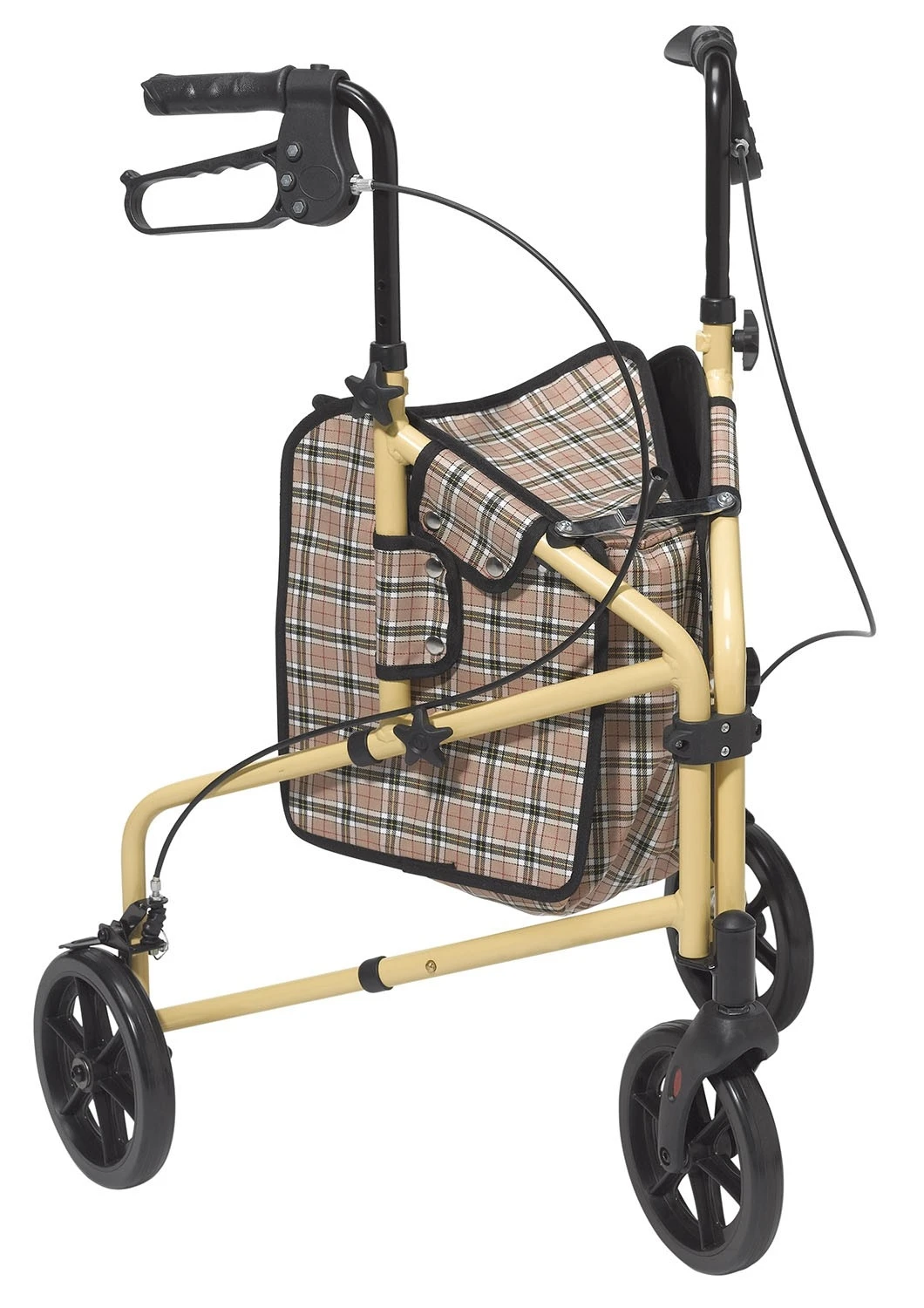
Approximately 12% of older adults use walkers during everyday activities around the home and while out and about. However, seniors can seriously struggle with finding the right walker for their specific needs and lifestyle. Without the right walker, older adults can increase their risk of falling as well as decrease the activities they enjoyed in the past. In that case, you may need a medical alert device with fall protection. Our LifeStation reviews will help guide you. We’ve compiled a comprehensive list of walkers for seniors that can help you, or your aging loved one, find options to review with your physician or physical therapist.
What Are the Benefits of Using a Walker?
While some older adults don’t mind trying out a walker for the first time, others can be quite resistant to adding this mobility aid to their daily routine. However, walkers for seniors can prove to be quite beneficial, when used correctly and consistently.
Using a walker can:
- Boost confidence of a senior who feels unsteady while moving around the home
- Improve balance
- Reduce the risk of falling at home or while out and about
- Increase the distance traveled during a walk, whether in the home or outside
- Improve endurance
- Decrease recovery time from a procedure or surgery
- Increase independence with activities of daily living
- Allow an active senior to continue doing the things they love without feeling worried about falling
The Centers for Disease Control estimates that 1 in every 4 older adults will fall at least once this year, making safe mobility for seniors an important topic. Walkers can serve as adaptive equipment that will not only reduce fall risk, but that will also boost confidence of seniors who feel worried about falling at home or outside of it. Unfortunately, seniors who feel nervous about falling are more likely to isolate at home and become more sedentary, which leads to decreased endurance, strength, flexibility, and range of motion.
In short, walkers, when used correctly and consistently, can be the key to maintaining an active and independent lifestyle.
Types of Walkers for Seniors

This three-wheeled walker is fashionable and comes with an accessory storage pouch. Image credit: Just Walkers
Walkers, like most adaptive equipment, are not one-size-fits-all. Instead, there are variations that can best match your personal situation. In general, walkers come in a few shapes as well as with a few options for the number of wheels. You can make the best decision possible about which type of walker to try based on your doctor or physical therapist recommendation.
Basic Walker
Perhaps the most common type of walker, the basic walker is slim on special features. However, its lack of flashy features does not make it any less useful. These walkers, which you can find in nearly any corner drugstore or medical supply shop, are lightweight and foldable, making them an ideal choice for seniors who don’t want to worry about navigating a clunky device throughout their home.
These walkers have four legs and zero wheels, which suits it best for indoor use. Since there are no wheels, the walker does need to be lifted during ambulation or moving about. Seniors who are recovering from a hospital stay or who have relatively strong balance and strength can find these basic walkers as the perfect solution.
For seniors who need a little extra support while walking, the basic folding walker can also come with two front wheels. This variation allows the senior to push the walker along the floor while walking, eliminating the need to lift the walker off the ground.
Three-Wheeled Walker
Not all walkers for seniors are basic or boring. With three legs in the shape of a triangle, one leg in front, and two in the back, the three-wheeled walker is an excellent option for seniors on the go. Each leg features a wheel, which makes ambulation smooth and easy. Even better, these walkers are made to be durable and stable over a variety of surfaces, which makes them safe at home, the grocery store, or the neighborhood sidewalk.
Three-wheeled walkers also offer seniors the opportunity to express their personal style. They come in a variety of colors, which can make them feel more like an accessory than an adaptive device.
Four-Wheeled Walker
Finally, another common type of walker for seniors is the four-wheeled version. With each leg featuring a wheel, this walker was designed to provide smooth support inside and outside. These walkers also feature a seat that doubles as storage, making it an ideal choice for older adults who may struggle with endurance or breathing. Simply lock the wheels to transform the walker into a safe place to rest.
Walker Safety Tips

This four-wheeled walker features a seat to rest and can be picked up at your local drugstore. Image credit: CVS
Contrary to what some people may think, seniors can still fall while using walkers. Typically, these falls occur when the older adult is using the walker incorrectly or in an unsafe environment. In order to keep yourself, or your senior loved one as safe as possible, be sure to follow a few safety tips:
- Work with a doctor or physical therapist to correctly size the walker; walkers that are too short or too tall for the user will lead to balance issues
- Learn how to correctly walk with a walker; many seniors tend to lean forward and push the walker in front of them instead of using the correct “step-in” method
- Always lock the brakes on your wheeled walker before using it as leverage for standing or sitting
- Practice safe sit-to-stand transfer techniques
- Clear out any clutter throughout the hallways and rooms of your home to make it more accessible; it’s difficult to safely maneuver walkers through cluttered hallways
- Secure rugs to the floor to prevent tripping with a walker
Where to Find Walkers for Seniors
While basic walkers can be picked up at your corner CVS, you can also find walkers and accessories online at various retailers like Just Walkers. When purchasing a walker from an online retailer, ensure the measurements and specifications match what you need. Further, never purchase a walker from an online retailer if you are just starting your walker use. Instead, practice your technique and find what works for you before investing in an online purchase.
Finally, your walker purchase may be covered by Medicare or secondary insurance. If your device is prescribed by your physician, you could be eligible for partial reimbursement.
A walker can be an excellent device to increase confidence and safety at home and beyond. Talk to your physician to find which option could work best for you to get started.


